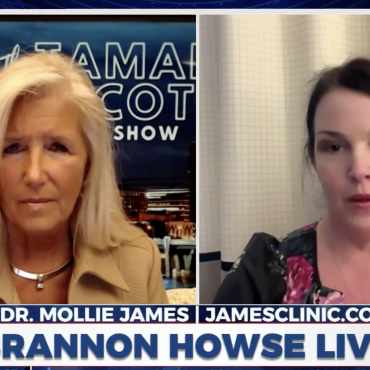Crosstalk: January 31, 2017
Dr. E. Calvin Beisner is the founder and national spokesman for The Cornwall Alliance for the Stewardship of Creation. Dr. Beisner has taught theology, apologetics, ethics, church history, economics and other disciplines. He has written four books on population, resources, economics and the environment; eight other books, contributions to over 30 books and hundreds of articles. He has testified as an expert witness on the ethics and economics of climate policy before Congressional committees and lectured for churches, schools, colleges, seminaries and conferences around North America, Europe, Africa and Asia.
Dr. Beisner began by commenting on the choice of Scott Pruitt, President Trump's pick as administrator for the EPA. The Cornwall Alliance has put out an open letter in support of Mr. Pruitt. The primary reason for this is because the Cornwall Alliance believes he will bring a much more common sense approach to regulation of the environment. Pruitt believes in sound science that's publicly transparent. Dr. Beisner also praised Pruitt as being firmly committed to cost-benefit analysis when regulations are done, the freedom of speech, along with robust debate in science, economics and public policy.
Myron Ebell, President Trump's former head of the EPA transition team, once stated that President Trump is hoping to cut the EPA's 15,000 person staff by at least half. Under the Nixon administration there were about 5,000 EPA employees. Dr. Beisner indicated that this desire for reduction has to do with the vision of Mr. Ebell, President Trump and Mr. Pruitt. They have a vision of environmental protection that focuses on the state, county and municipal levels rather than at the federal level. Dr. Beisner believes this makes good sense because of the differing geography, geology, climate and human activity throughout our nation. So he contends that it makes sense to have environmental policies set at the most local levels possible as opposed to the 'one size fits all' policy making program of the EPA over the past 25-30 years.
Has the EPA manipulated science to fit their own political goals? Dr. Beisner gave the example of the EPA's Mercury and Air Toxics Rule. They claimed that this rule regulating the emission of mercury from coal fired power plants would save a certain number of lives every year. Dr. Beisner feels they weren't being honest with the data within their own working documents.
They asserted that dangerous levels of mercury in the blood of pregnant mothers could be reached in those women who made their living as fisher-women. That's assuming they consumed 200 pounds of self-caught fish per year from the most mercury polluted waters in the U.S. They modeled that and figured that if mercury emissions were cut by a certain amount we'd reduce the deaths to their infants.
So what was the problem with this? There's no such 'fisher-women' anywhere in the U.S. In fact, the EPA even admitted it. In spite of the admission they went ahead and claimed the death reduction.
Concerning the issue of global warming, we've been told that 2016 was officially the warmest since records have been kept beginning in the 1880's. Dr. Beisner noted that the truth of that depends upon the credibility of the databases used by NASA, NOAA and others. He explained the technique of 'data adjustment' that's being used and how it appears to be pushing earlier temperature readings downward and the later temperature readings upward, leaving the impression of an increase in more and faster warming over the period.
Overall, the difference between the 2015 and 2016 temperatures is so small, even according to their adjusted data, the difference falls within the margin of error. This means it's just as plausible that 2015 was warmer than 2016. Also, according to satellite and weather balloon readings, readings that are more reliable than land-based measurements, 2016 and 1998 are different by only two-hundredths (.02) of a degree which is much less than the margin of error. In other words, we're still not seeing warming at a rate that is anywhere near what the computer models predict.
Dr. Beisner also weighed in on the following:
--To reduce the world's temperature three-tenths (.3) of a degree by the end of the century would cost the citizens of the world 100 trillion dollars.
--What is the significance of having President Trump pull the U.S. out of the Paris climate change agreement?
--U.N. Secretary General Ban Ki-moon said that abandoning or damaging the Paris climate accord would condemn future generations to untold suffering.
--President Trump's executive actions dealing with the Keystone XL and the Dakota Access pipelines: Will the water supplies be at risk?





























